Women and Water
Water Rights Are Women's Rights
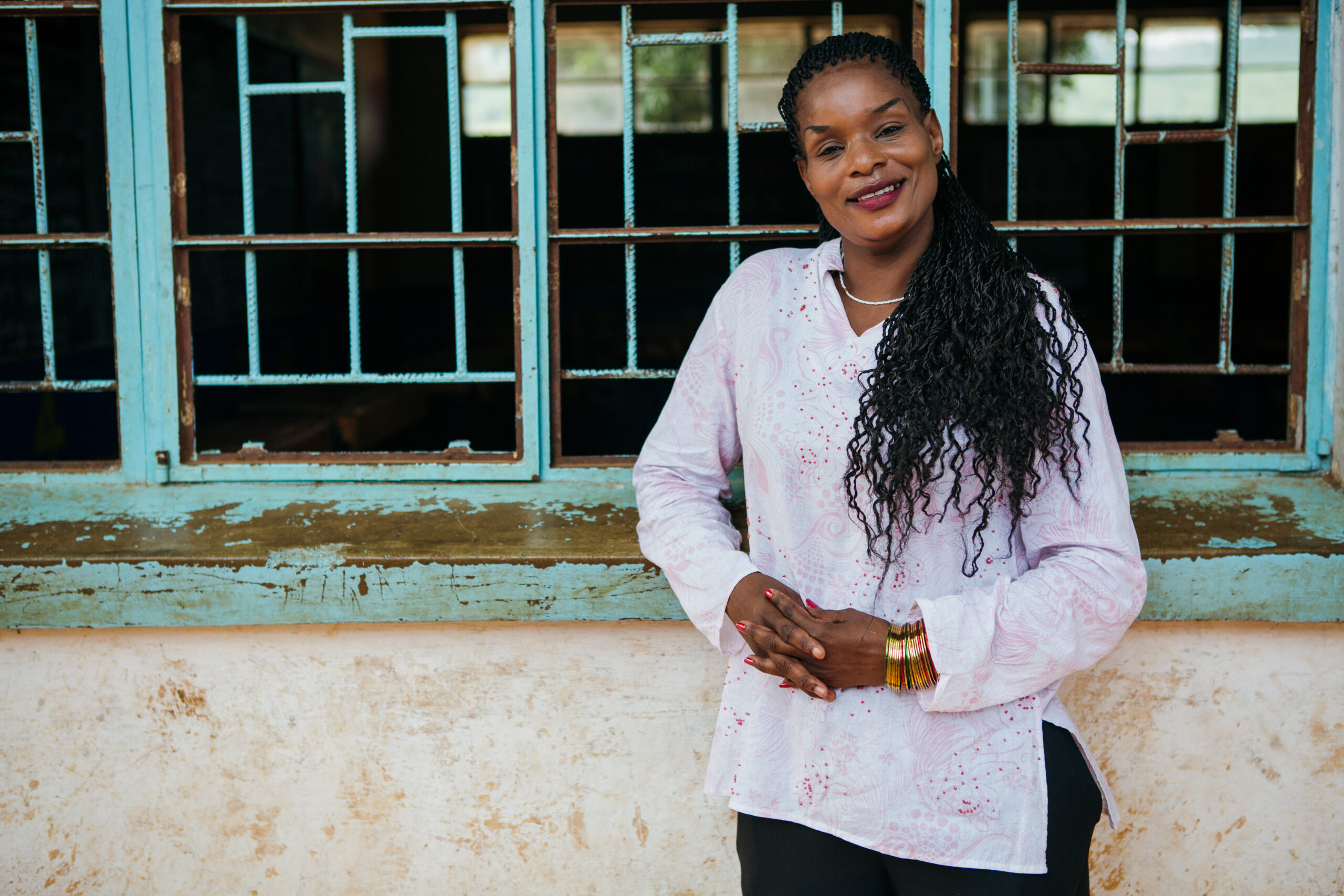
It starts when they are four, sometimes younger, joining the older girls and women walking miles each day for clean water for their families. From there, every aspect of a girl’s life – school, safety, health, economic opportunity, safe childbirth – is impacted by the lack of access to safe water and sanitation.
Globally, women and girls are responsible for water collection in 7 out of 10 households without water at their homes.¹
Adding to all of this are the effects of climate change. When you’re already walking miles to collect water, drought or flooding complicates that task even further.
Collectively, women and girls spend 200 million hours each day collecting water, and those living without a toilet spend over 250 million hours each day finding a place to go.²
In one Kenyan study 95% of menstruating girls missed 1-3 school days a month, 70% reported a negative impact on their grades, and over 50% stated falling behind in school due to menstruation.³
1 million deaths each year are associated with unclean births. Infections account for 26% of neonatal deaths and 11% of maternal mortality.⁴
"Access to water and sanitation are human rights.
Where females are unable to enjoy those rights, their health is profoundly affected, curtailing their educational and economic opportunities, and denying them their full role in society."
– United Nations Water
What the Crisis Looks Like
Some Indian Women Have No Choice but to Hold It In
Researchers found that among women without proper toilet access, more than 21 percent reported holding in their urine and more than 26 percent said they modify their meals to avoid using the toilets at night.
Women's Water Insecurity Is a Global Health Crisis
Women’s water insecurity is a global health crisis that impacts a multitude of regions, and disproportionately impacts women of color, low-income women, and children. Women are inordinately affected by failures in the global water system.
We Can't Fight Climate Change Without Fighting for Gender Equity
A comprehensive report from United Nations (UN) Women found that women are disproportionately impacted by most if not all of the challenges highlighted in the UN’s Sustainable Development Goals (SDGs).
Anita and her daughter turn on the tap with water at their home in Peru.
The Work We're Doing
Water For People promotes equity and opportunity through training women in business and civic leadership, establishing menstrual hygiene changing rooms and education in schools, bringing women's voices into the design and operation of water systems, and ensuring access to the dignity and privacy of bathrooms.
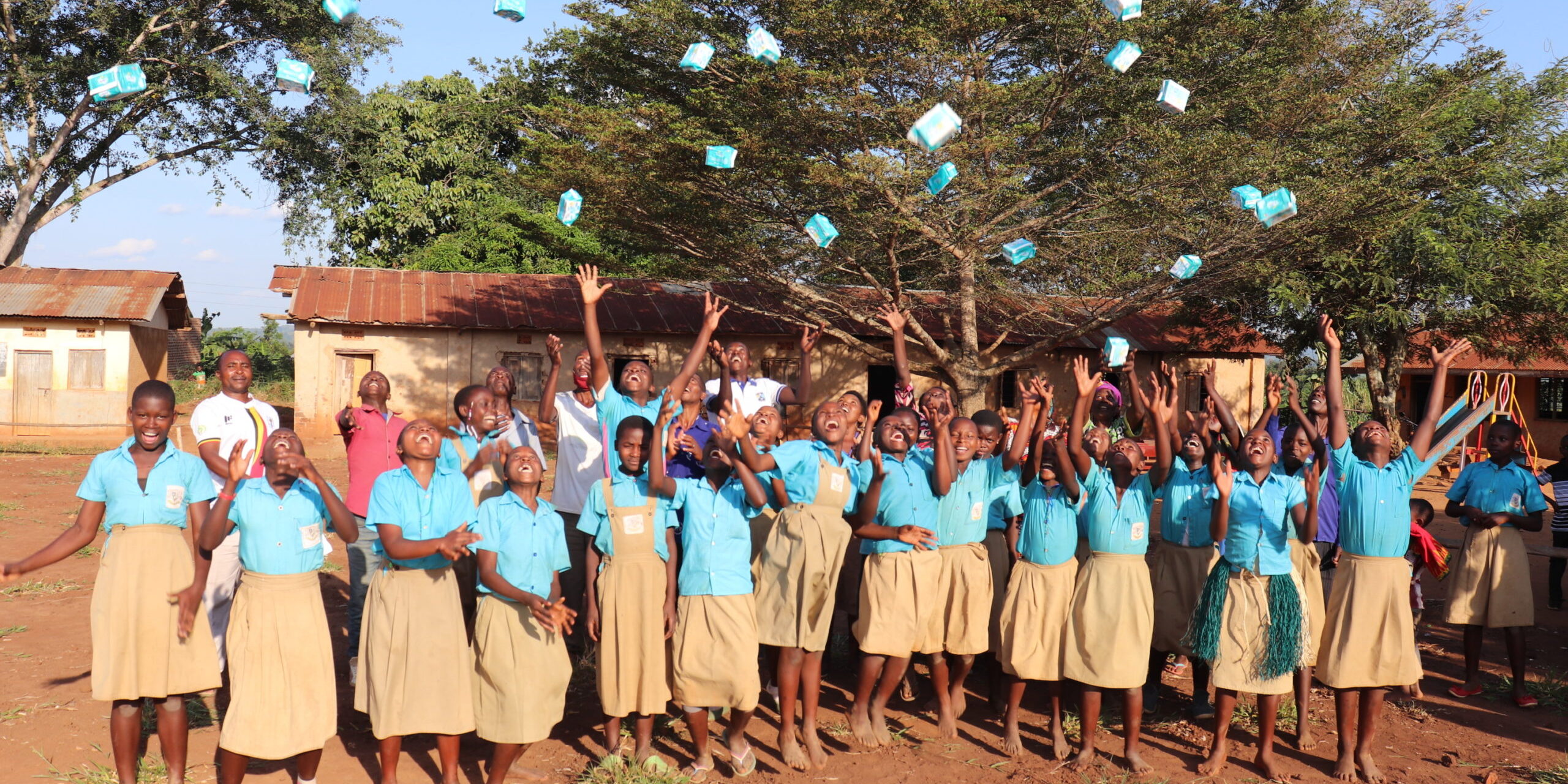
Malawi | Breaking the Silence Around Menstrual Hygiene
In communities around the world, conversations about menstruation are taboo or even forbidden. Read about how we're working with schools in Malawi to bring context-specific menstrual hygiene education to rural communities.
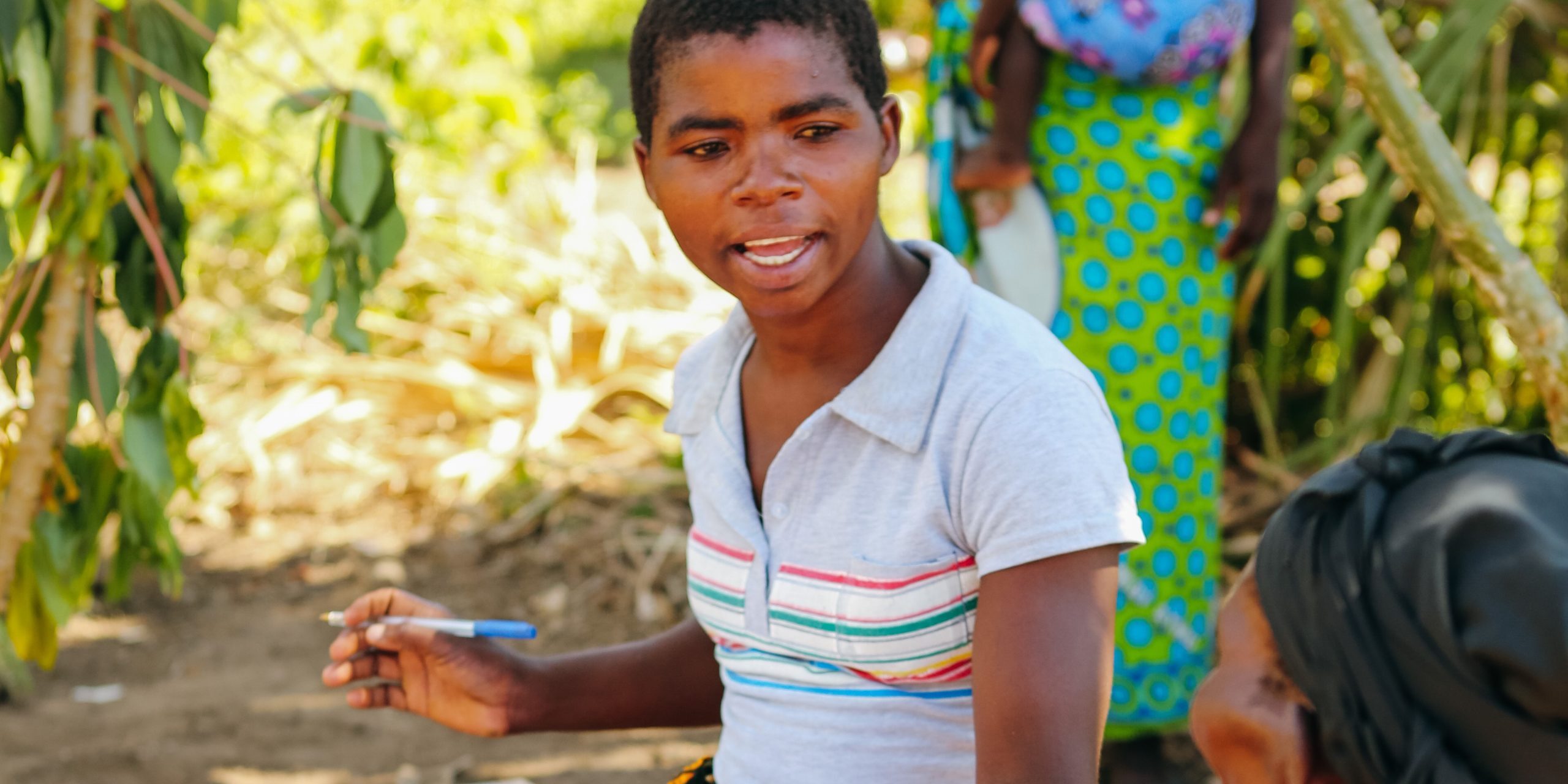
Global | Actively Engaging Women to Solve the Global Water Crisis
In our experience, the active participation of women enhances solutions to help end the global water crisis. Read about how we're empowering women with strong roles in water, sanitation, and hygiene work.
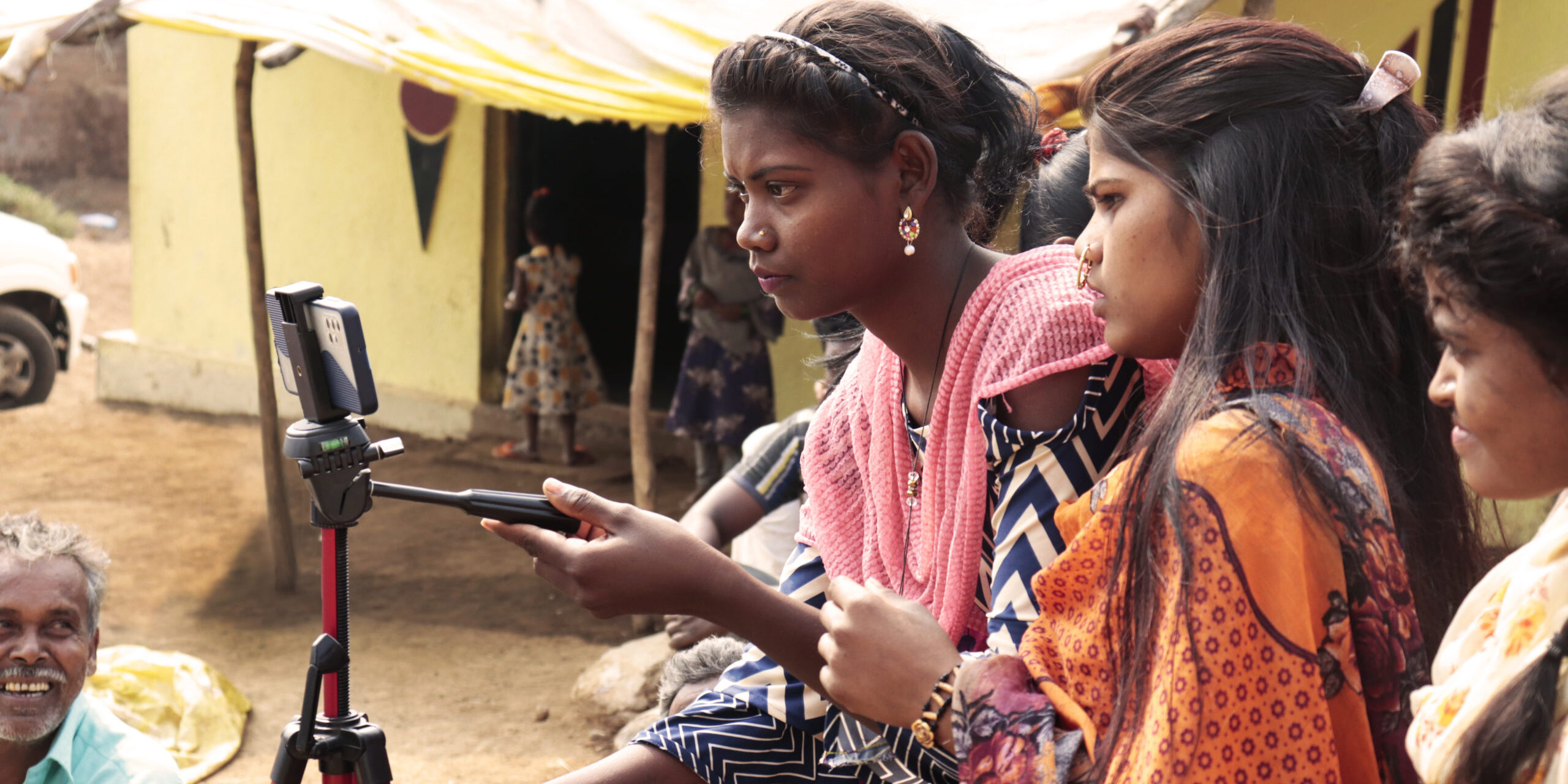
India | Women Raising their Voices for Behavior Change through Videos
In rural India, we partnered with a local group that uses media to give a voice to marginalized groups. Read about a series of videography workshops for women and girls to create connection and education around the social context of water in their village.
Runway for Water
This Season's Hottest Runway
Isn't actually a runway at all. It's a walk that billions of women make for water. For Fashion Week, we're debuting a film shot in Maharashtra, India. The models are real women and girls who walk that route every day. And their accessory, the water jug, is their family's lifeline.
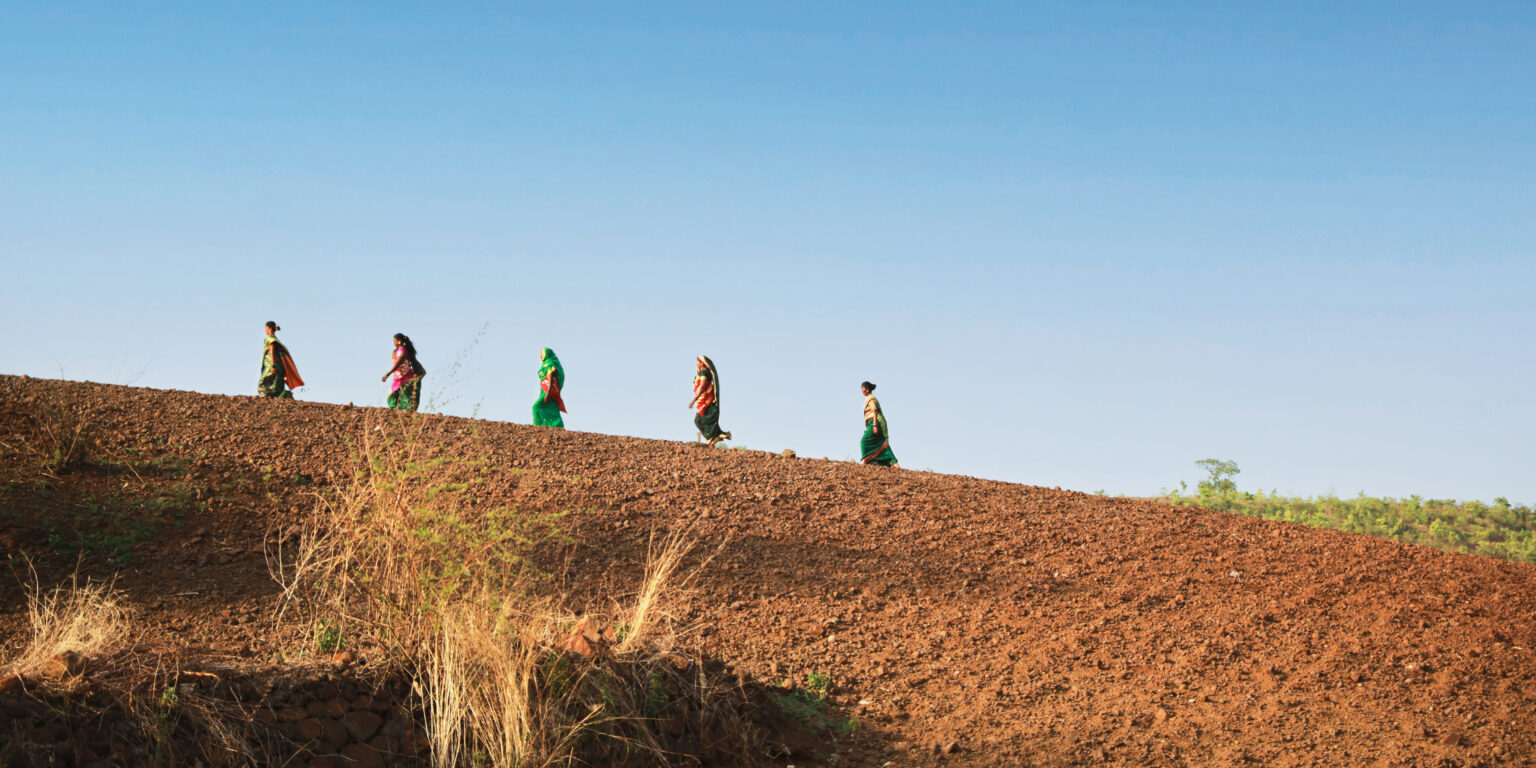
Further Reading
- "Making Sure Women Have a Seat at the Table" Read the Water For People article.
- "Women And The Water Crisis: Why Tackling Two Top Global Challenges Will Be A Force Multiplier For Change." Read the article from Switch the Future.
- "Global Report Reveals Major Gaps in Menstrual Health and Hygiene in Schools." Read about the new report from the WHO.
- Meet Teresa, an indigenous community leader in Guatemala bringing water to her community. Read her story.
- Meet Seema, a woman who first convinced her husband than her entire community, about the importance of building toilets. Read her story.
- "Progress on household drinking water, sanitation and hygiene 2000-2022: gender focus." Read the report from the WHO and UNICEF.
Sign Up
Sign up to learn more about the global water, sanitation, and hygiene crisis and how you can take action.
"*" indicates required fields
¹ WHO/UNICEF Joint Monitoring Program (JMP), Progress on household drinking water, sanitation, and hygiene (WASH) 2000-2022: Special focus on gender, 2023.
² Water For People in the Journal of Water, Sanitation, and Hygiene for Development, "Actively engaging women is helping solve the global water crisis"
³ World Bank Blogs, "Menstrual health and hygiene empowers women and girls: How to ensure we get it right"
⁴ WHO/UNICEF, Water and Gender Facts
